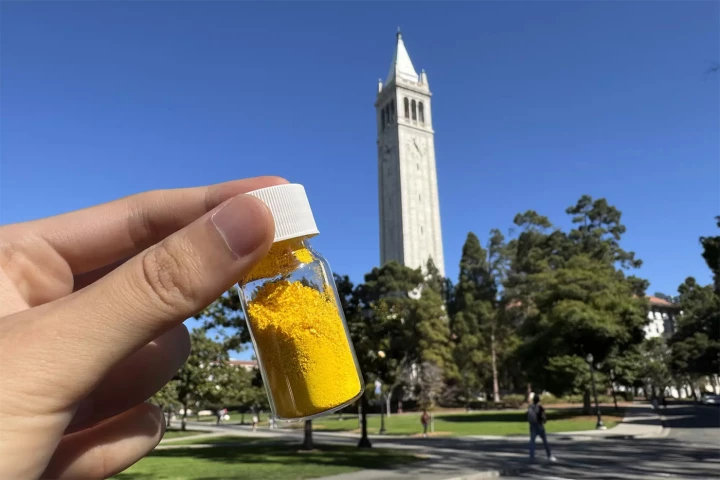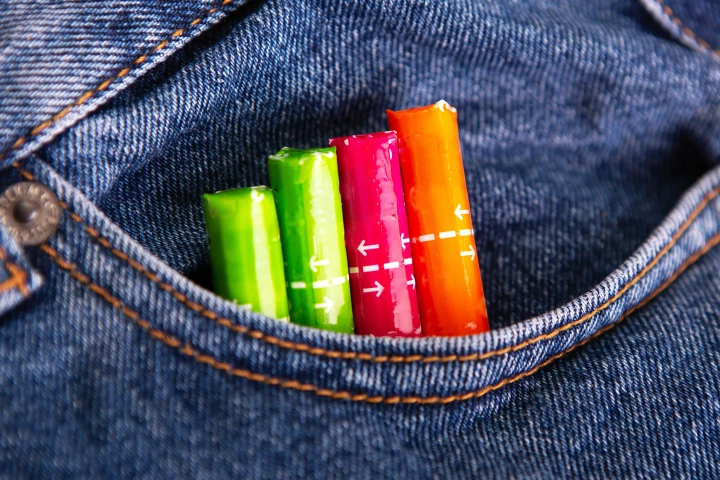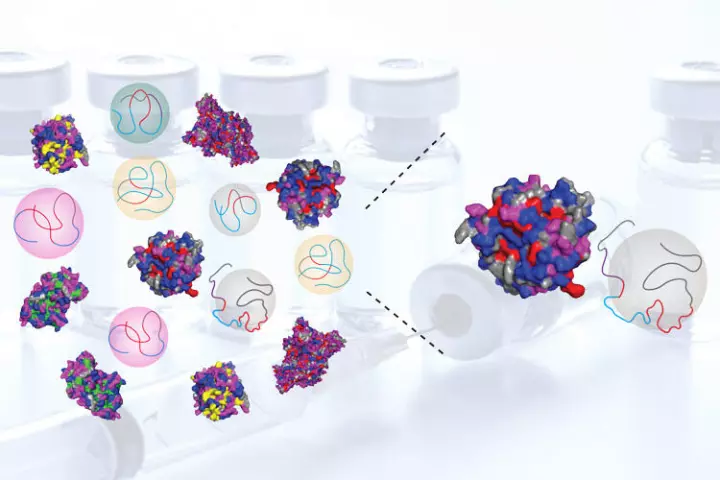UC Berkeley
-
Scientists have created what they say is the world's smallest untethered flying robot, by taking a unique approach to its design. To minimize size and weight, they've moved the bot's power and control systems out of its sub-centimeter-wide body.
-
When someone has been rendered tetraplegic by a spinal cord injury, they may still retain partial use of their wrists. A new device could help such folks lift cumbersome objects, by adding a robotic hand to the back of their dominant hand.
-
Under the right circumstances, electrons can actually “freeze” into a bizarre solid form. Now, physicists at Berkeley Lab have created and taken the first ever direct images of this structure.
-
Researchers at UC Berkeley have invented a material in powder form that adsorbs carbon dioxide with astonishing performance. Just 200 g (a little under 0.5 lb) can suck up 44 lb (20 kg) of CO2, the same as a tree does in a year.
-
The good news is that there's a vast ocean of water under the surface of Mars – enough to cover the entire planet to a depth of a mile (1.6 km). The bad news is that this repository is so deep and unreachable that it might as well be in another galaxy.
-
The first study to measure the concentration of metals in tampons has found that several brands contain concerning amounts of lead, arsenic and cadmium. More research is needed to determine whether the presence of these toxic metals poses a health risk.
-
They've lived on earth for 280 million years at least, but starfish – or sea stars – remain a huge mystery in biology. Now, long-held beliefs regarding their unique design have been upended, as genetics reveal they're not all arms but nearly all head.
-
A new study has uncovered the mechanism by which the brain waves produced during deep sleep can predict blood glucose control. The discovery highlights the importance of sleep in managing diabetes and offers a novel way of mapping the disease.
-
If your local hummingbird is getting a bit aggressive, it may have a drinking problem. A recent study by University of California, Berkeley biologist Robert Dudley indicates that, along with nectar, hummingbirds get alcohol from flowers and feeders.
-
Dome-skulled dinosaurs may have looked less like Friar Tuck and more like the Fresh Prince of Bel Air. New fossil finds suggest they may have had big bristly ornaments on their heads, and might not have butted heads like they do in the movies.
-
Could salt, one of the oldest preservatives around, help keep carbon deep underground for thousands of years? Researchers believe it can, and that it might offer a way forward in containing a gas that's a major contributor to climate change.
-
Can we take shortcuts on nature’s blueprint and make more efficient synthetic proteins? A new study finds simple combos of synthetic building blocks can make for protein alternatives that work just as well as, or even better than, the real thing.
Load More











